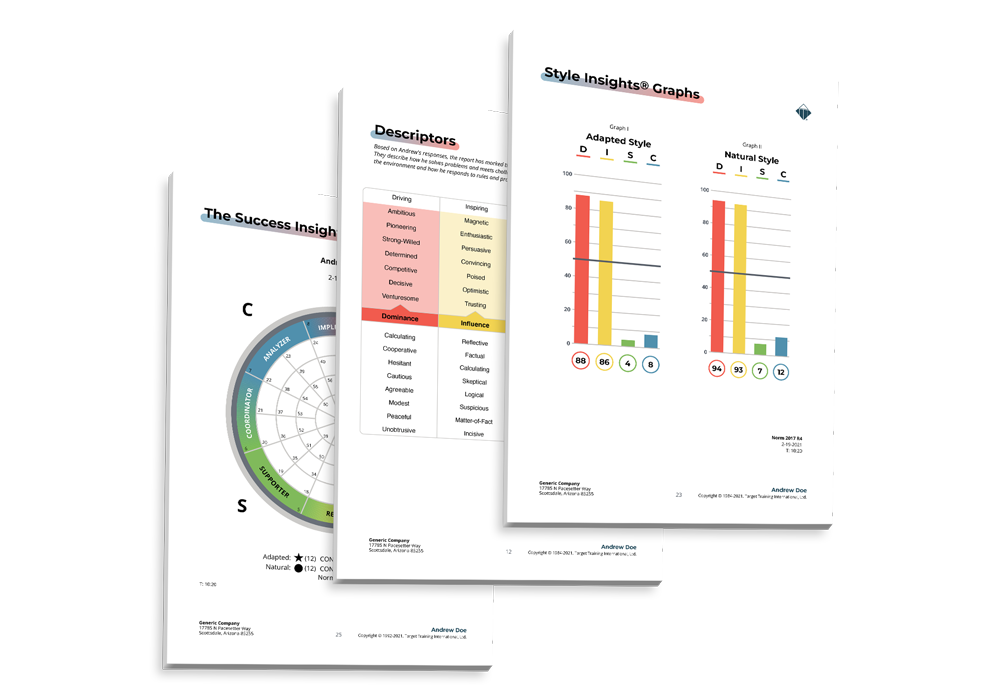DISC profiles are a tool used to assess an individual's behavior and communication style. They are based on the DISC model, which was developed by psychologist William Moulton Marston in the 1920s and is used to classify four different types of behavior: Dominance, Influence, Steadiness, and Conscientiousness. These four dimensions are believed to be related to how people interact with others and their environment.
Using DISC profiles can be helpful for building high-performance teams for several reasons.
First, DISC profiles can help team members understand and appreciate each other's differences. By understanding how their colleagues prefer to communicate and work, team members can adjust their own behavior to better collaborate with each other. This can lead to increased team cohesion and productivity.
Second, DISC profiles can help team leaders identify the strengths of each team member and assign tasks and responsibilities accordingly. For example, a team leader may assign tasks that require strong attention to detail to team members with high Conscientiousness scores, while tasks that require strong influencing skills may be assigned to team members with high Influence scores. By leveraging the strengths of each team member, leaders can create a more efficient and effective team.
Third, DISC profiles can help team leaders manage conflict and improve communication within the team. By understanding the behavior and communication style of each team member, leaders can anticipate and address potential conflicts before they arise. They can also use this information to facilitate better communication within the team and ensure that everyone's needs and concerns are being heard and addressed.
In conclusion, DISC profiles can be a valuable tool for building high-performance teams by helping team members understand and appreciate each other's differences, leveraging the strengths of each team member, and improving communication and conflict management within the team. By using DISC profiles, team leaders can create a more cohesive, productive, and efficient team that is better able to achieve its goals.

